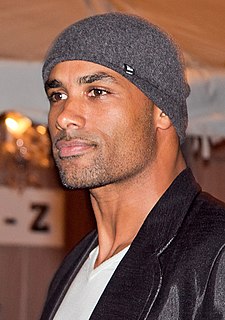A Quote by Kim Brooks
I love food, but I can't bear to read about it, to talk about it, to discuss the consequences and context of how we consume it. And this is more or less how I feel about raising children, too.
Related Quotes
I believe that one of the most damning things about our culture is the adage to never talk religion and politics. Because we don't model this discourse at the dinner table and at Thanksgiving, we don't know how to do it well and we're not teaching our children about the world and about how to discuss it.
Charisma seems to be more about the intoxicating quality that you have on other people, as opposed to presence, which is more about the self in relation to others, and how you feel you represented yourself in a situation, and how you were able to engage. So it's less about how others see you and more about how you see yourself.
On the contrary, it's because somebody knows something about it that we can't talk about physics . It's the things that nobody knows anything about that we can discuss. We can talk about the weather; we can talk about social problems; we can talk about psychology; we can talk about international finance gold transfers we can't talk about, because those are understood so it's the subject that nobody knows anything about that we can all talk about!
When you go into a fast food restaurant, you may just think about how good your meal tastes while you're eating it. But you're not thinking about all the consequences that come from that one purchase - the consequences for your body, the consequences for supporting this company and how it's treating it workers, all the way back to the farm where the potatoes were grown, or the ranch where the cattle were raised.
I try to be aware of what I'm concerned about, aware of how I feel about myself in the world, aware of how I feel about the issues of the day, but I guess I don't want to write essays in my head about my craft and maybe it's because I teach and talk about craft of other writers as a reader. I feel the moment I start doing that is when it's going to kill me.
Communication requires cultural context, and technology facilitates our ability to cross-reference ideas over time. Charles Moore were saying: Enough with the sterile, context-less architecture. Enough with the functional-minded frame of operation. How about a little mess? How about a little, let's say, syntax? A little quotation using history? How about some other meanings or symbols? I think that's the only logical reaction when you have to thoughtfully manage the communication of a lot of information.
The next day, when I was sober, I thought again about the three of us, and about time's many paradoxes. For instance: that when we are young and sensitive, we are also at our most hurtful; whereas when the blood begins to slow, when we feel less sharply, when we are more armoured and have learnt how to bear hurt, we tread more carefully.






































